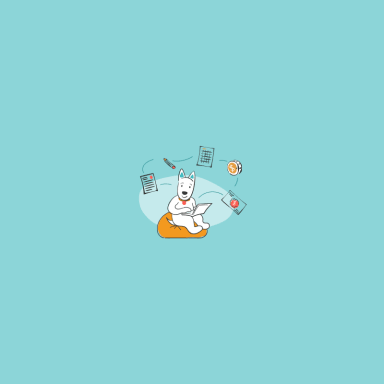Seth Godin, as you probably know, is one of the greatest marketers around, a New York Times best selling author, and one who really gets what it takes to be successful in business and small business, and to be an entrepreneur.
He sits down with TSE CEO Steve Strauss to discuss, among other things, why he launched a book on Kickstarter, and why Mr. Sleepy is not Sleepy!
Interview with Seth Godin
Steve Strauss: Thanks for being with us today, Seth.
Seth Godin: Well, thank you for having me and for the leadership that you provide everybody everyday. I appreciate it.
Strauss: I’d like to start with your book, The Icarus Deception. You did it on Kickstarter, so before I even get into the book I’d love for you to tell us why you decided to kickstart this project.
Godin: Well, I wanted to make a point, not to make a buck, and the point was that if you spend 7 years you can become an overnight success, that if you can organize your tribe, build a following that believes in you enough and trusts you enough, that they’ll show up, then yes, in three hours you’ll meet your funding goal.
I also wanted to show authors that the hardest part of making a book is getting the first 10,000 copies into the world. After that the book on its own. Either it works or it doesn’t. And once you’ve done that and organized a tribe and gotten them to pay for a copy and then they get it, every publisher in town is going to want to work with you. So for small businesses out there, the point I’m trying to make it that things like Groupon are not a Hail Mary pass that’s going to work, cuz they’re not, but that persistent, generous consistent connection to your audience of fans can turn into something that you can leverage and use to make a bigger rukus.
Strauss: You know, I agree with everything you just said. One, about Groupon, and two, about connection. I think one of the things that makes you different and stand out from the sea of other small business writers, experts, gurus out there, is that you actually do make a connection. And I think for any small business person out there who’s listening, who wants to set their business apart, you have to be unique, different, and special, and one of the ways you do that is actually by making a connection. Cuz that’s the thing that we have that a larger company doesn’t have.
YEAH, I THINK THAT IF ALL YOUR SMALL COMPANY IS A SMALLER VERSION OF A BIG COMPANY YOU’RE GOING TO LOSE.
Godin: Yeah, I think that if all your small company is a smaller version of a big company you’re going to lose. Big companies are really good at industrialization, they’re very good at squeezing out the last penny, at being every more reliable. So the answer, isn’t, I think, to be Robin to there Batman, the answer isn’t to try to be a junior version of a big company, the answer is to say, “We’re not going to be cheaper or more consistent or more industrial than the big guy, we’re going to be more human than the big guy.
And guess what, the big guy can never be more human than you.” And as you seek to be human, that means being vulnerable, being open, being connected. It means caring, it means not having a policy, if you can get around having a policy, it means being flexible and faster and more daring. And we’re so pressured as small business people, so under the gun, that we think what we’re supposed to do is keep our head down and act like General Electric, but what I’m arguing in The Icarus Deception is to hold your head up and act the opposite of General Electric.
Strauss: Well, in fact, so you say that we’re all artists now, what do you mean by that?
Godin: What I mean is that the Industrial Age, which lasted 100 years, rewarded people who did what people before them did. And that what school taught us to do was be a compliant cog in the industrial system. But if you’re getting paid by a market that values you, you’re getting paid because you’re doing something surprising, and generous, and real, and that’s what artists do. Art has nothing to do with painting, art is the emotional work of doing something that hasn’t been done before and connecting with people in a place where you might be afraid.
Strauss: So, I can see how you ended up on Kickstarter with that idea because it really resonates I think, with someone who would go to Kickstarter, but not all of us are Seth Godin, not a lot of small business people can go onto Kickstarter and try and raise 40,000 and impressively raise well over 200,000. What lessons did you learn from Kickstarter that the rest of us can take away?
Godin: I want to call you on what you just said. I mean, not everyone is a skinny kid from Buffalo with a shaved head. But, if you want, if you want to have that privilege, you start dripping today and 7 years from now you’ll have that privilege.
THAT THE LESSON OF EVERYTHING I’VE DONE SINCE I WROTE PERMISSION MARKETING 13 YEARS AGO IS, YOU KNOW, YOU DRILL YOUR WELL BEFORE YOU NEED WATER.
That the lesson of everything I’ve done since I wrote Permission Marketing 13 years ago is, you know, you drill your well before you need water. You are generous to people and connecting to people and building a following and then you get to do those things that right now, it’s so easy to say, well I’m not that person. You know, so we look at the Magnolia Bakery, and we say, wow, that’s great, they’ve got lines out the door because they were on “Sex and The City” for years and years. So all I need is a popular HBO TV series to pick me and feature my business and I’ll win.
Well, you can dream and dream about that all day long, or you can take control and decide that you don’t care about about getting picked, and you don’t care about mass media publicity. What you care about it is, can you get 10 of your customers to each tell 10 other people about something you just did. Because if you can, now you’re up to 100. And if you do that 5 times, you’re bigger than you know what to do with. But, the act of making that happen requires that you invest and take risks that aren’t comfortable with you today.
But instead, we’ve all been brainwashed into acting like little versions of big industrial companies. And being boring and average and having a policy. I went on a trip a few years ago, and the place we were going to stay fell through, so we ended up renting a beach shack in Cape Cod from a guy who was a landlord for three buildings. And we had our dog with us, and he said, “No, you can’t have your dog here. We have a policy.” I said, “How can you have a policy!?” You have three beach shacks? I said, “Here, here’s a check for $1,000. If anything goes wrong it’s a deposit. We’re going to be here for two days.” And rather than change his policy he left the place open. Now, he could say, I don’t like dogs. That would be fine. But to announce that there’s a corporate policy when you’re a sole practitioner is crazy.
Strauss: Well, not only that, but the funny thing about a small company, a small business, having a policy, is the value isn’t breaking the policy. Cuz as soon as you, even if you have a policy, but if you break it, make the exception, all of a sudden you have, you know, engendered yourself to that person and they’re going to be yours for life I think.
Godin: Exactly. And so what we do as artists is we take this risk and the risk is we don’t do the tried and true, we do the thing that might not work, And that is what is at the core of what it means to be truly a small business person. Is that you wake up in the morning and you say to yourself, this might not work.
And you don’t set out to do exactly what you did yesterday, but a little faster and a little cheaper. Leave that to the Subway franchise. What you do is you wake up in the morning and say, I have the privilege, maybe not in everything I do all day, but in something I do today to interact with somebody in a way that might not work, and when I do that I will learn more and engage more than my competition. If you do that everyday you’re going to leave the competition behind.
Strauss: You know, when I was a little boy I grew up in an entrepreneurial household, like I think a lot of small business people do, and it was in the 60’s and I had to write an assignment about what my dad did for a living. He owned 16 carpet stores and I couldn’t figure that out, it wasn’t like lawyer or doctor, so I said, “Dad, what do I say, what do you do?” And he said, “Well, Stevie, I’m an entrepreneur. First of all, it was 65 or 66, it wasn’t a very common word then. Id never heard it. I was like, what is that? And he said, “An entrepreneur is someone who is willing to take a risk with money to make money. That was his definition, forevermore I love that idea and what I find about great entrepreneurs, whether they’re selfemployed small business people or, you know, someone who created Apple, they take risks and they take smart prudent risks, but they find the risk to be the juice that gets them going everyday.
Godin: I want to tell you a story about a business just like your dads, which is the Sleepy’s chain of mattress stores in New York. I was in one buying a mattress and while we were there the phone rang and the guy answered the phone, and it turned out it was Mr. Sleepy himself, and this guy is a hundred million dollar or more a year business with dozens or more stores.
AND MR. SLEEPY APPARENTLY IS IN HIS 70’S
And Mr. Sleepy apparently is in his 70’s and what the sales guy told me is that every single day all he does when he goes to work is Mr. Sleepy picks up the phone and calls every single store. One store after another. And you pick up the phone, all he say to the sales rep is, “What’s wrong, what’s not working?” And if you say nothing you’re in big trouble. You have got to find something in the store that is not helping the customer. And you tell Mr. Sleepy and within a day or two it’s fixed. And that’s all he does for a living. Is he calls all his stores and fixes what’s not working.
Strauss: So Mr. Sleepy was not sleepy
Godin: Exactly
Strauss: Hey Seth, if you could say a common mistake that you see small business people make most often could you answer that and, if so, what might you see people doing wrong that you wish they wouldn’t do?
Godin: I think that the biggest mistake is they think too big when it comes to profit and they think too small when it comes to making a difference. That, I frequently see small business people with dreams of becoming the next giant IPO, we’re going to be billionaires, blah, blah, blah, and they think they’re going to get there by doing what they’re doing today, but faster.
And yet, when they’re given the chance to touch a customer and to make a difference, when they’re given a chance to, you know, a friend who owns a bakery got a call from someone who was going to a funeral, and they said, can I have this special order. I’ll pick it up on my way to the funeral. And the woman didn’t come in and called on her cell and said I had to go to the funeral first, can I pick up on my way home?
And that was after the bakery was supposed to close. So the owner of the bakery took the time to make a sign, go to the restaurant next door, ask a favor, have the restaurant store the baked goods in the back, so that the person on the way home from the funeral could pick it up there at her convenience. And that is thinking big when it comes to making a difference, it’s not necessarily thinking big when it comes to cashing out today.
Strauss: But was it a chocolate babka?
[LAUGHTER]
Strauss: What’s your favorite book you wrote? I’ll tell you my favorite book you wrote, and I’d like for you to tell me your favorite book you write. So I love Purple Cow. I think Purple Cow is a great book, not that other ones weren’t. I’ve had people say this to me. I’ve written a couple of books of my own, but, you know what, Purple Cow was my favorite, I just think the idea of standing out is something that the people I talk to a lot and work with really need to learn and master. I’ve taken it to heart myself, and it’s really made a difference to me. So thank you for that.
Godin: Well, thanks for saying it. I would say as a contrarian, the book that sold the fewest copies, Survival Is Not Enough, is my favorite because it sold the fewest copies and was so brave when I wrote it. Two free ebooks that I’ve written are my favorites because they’re free, they’ve touched a lot of people. People who are listening can go get them by typing in “The Bootstrapper’s Bible” into Google or “Stop Stealing Dreams.” But like all wonderful, thoughtful, small business people, it’s the lastest book that I’m the most excited about because hope springs eternal and I think The Icarus Deception is really changing the lives of the people who touch it. So I know I cheated when I answered that question but there you go.
Strauss : What is it you hope people get out of Icarus?
Godin: It’s ok with me if you cry a little bit but mostly I hope that you’ll become restless.
Strauss: Great answer. Thank you so much for being with us today and for all you do for our giant tribe of small business, selfemployed, entrepreneur artist folks out there. Keep up the good work.
Godin: Thank you. Keep up the good work is what I was about to say . . . and make a ruckus.
Steve Strauss is a Senior small business columnist at USA TODAY and author of 15 books, including The Small Business Bible.




